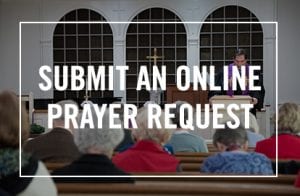The Chancel Choir’s annual Christmas concert is Sunday, Dec. 15, at 3:30 p.m. in the Sanctuary. The largest work on the program is John Rutter’s, “Gloria.”
Gloria is a musical setting of parts of the Latin Gloria. It resulted from a commission of Mel Olson, who conducted choirs in Omaha, Nebraska. Rutter composed it in 1974. He structured the text in three movements and scored it for choir, brass, percussion and organ.
The composer explains the structure as “fast, slow, fast, in common with symphonic practice,” and describes the movements as “exalted, devotional and jubilant.” He notes about the scoring, “The accompaniment is for brass ensemble with timpani, percussion and organ—a combination which in the outer movements makes quite a joyful noise unto the Lord, but which is used more softly and introspectively in the middle movement.”
A reviewer notes as Rutter’s hallmarks, “an unfailing knack to get to the root of the text, exquisitely balanced vocal writing, melting harmonies, intensely sweet turns of phrase, short ecstatic climaxes, but also a willingness to be astringent and rhythmically powerful.” Another reviewer attributes the lasting success of Rutter’s music to the facts that he “writes music that people want to perform and to hear,”[3] and that it is interesting and challenging for performers “without putting insuperable obstacles in their path.”
The concert also includes several pieces by our Minister of Music, Rev. C.G. Walden. This will be Rev. Walden’s final concert at DUMC before his retirement.
The piece “Nativity” is the most significant of these works. The text is drawn from two poems about the incarnation, John Donne’s, “Nativity” and John Milton’s, “On the Morning of Christ’s Nativity.” This poetic commentary captures the profound depth of God-become-human in phrases such as “…there He hath made Himself to His intent Weak enough, into the world to come…Seest thou, my soul, with thy faith’s eyes, how He which fills all place, yet none hold Him…” and “He laid aside, and here with us to be, forsook the courts of everlasting day, and chose with us the darksome house of mortal clay.” The musical setting uses a harmonic language which allows for constant modulations to distant keys by keeping one not common between chords. This results in a mystic quality that compliments the mysticism of the texts.
One other piece, arranged by Rev. Walden for our Director of Performing Arts, Robert Edwards, is the Appalachian carol “I Wonder as I Wander.” This will be the last chance for our congregation to hear Mr. Edwards’ incredible baritone in concert, as he is retiring at the end of December.





